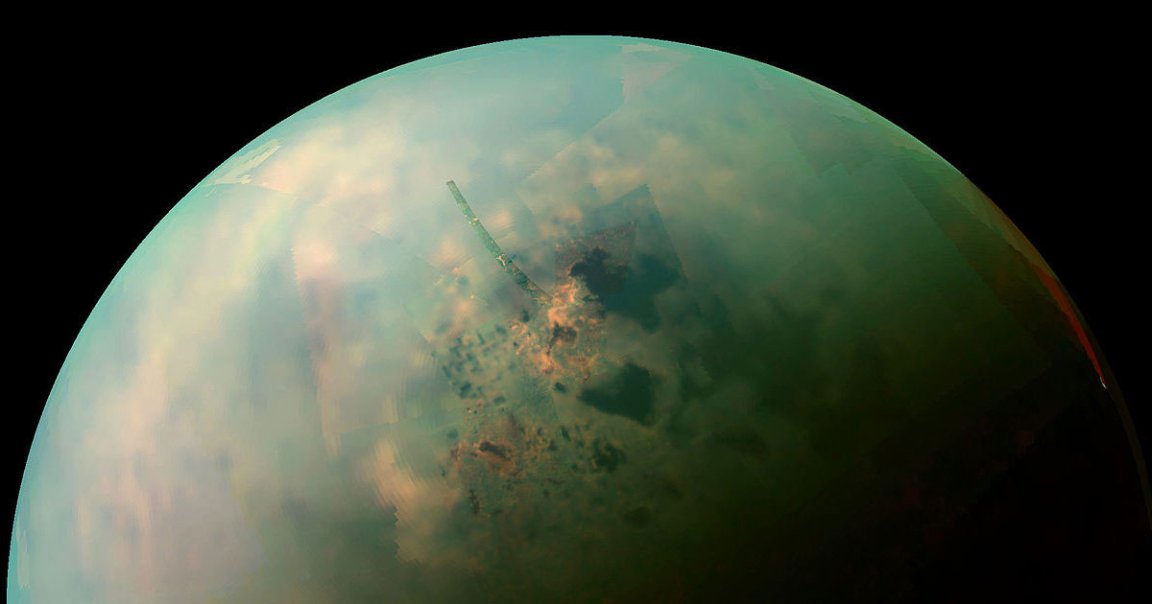
Titan in a Vial
Scientists have been able to replicate the atmosphere of one of the solar system’s most enigmatic moons right here on Earth.
The researchers were able to recreate the chemical composition of Saturn’s largest moon Titan in tiny glass vials, according to WIRED. The team presented their findings to the American Chemical Society (ACS) fall meeting this week.
“Our research revealed a lot about the structures of planetary ices that was previously unknown,” said Tomče Runčevski, an assistant professor of chemistry at Southern Methodist University and the study’s principal investigator, at the event.
Recipe for Moon Air
Want to make some moon atmosphere on your own? Simply dust off that laboratory freezer that can get down to -290 degrees F, gather your glass vials, and follow these instructions:
“Typically, we introduce water, which freezes into ice as we lower the temperature to simulate the Titan atmosphere,” said Runčevski. “We top that with ethane, which becomes a liquid, mimicking the hydrocarbon lakes that Cassini-Huygens found.”
Surprising Findings
Runčevski and his team made a few interesting discoveries. For example, two molecules typically found on Titan — acetonitrile and propionitrile — combine into a crystalline form due to the moon’s sub-freezing temperatures.
These insights and others gathered by Runčevski will surely help guide future NASA missions to explore Titan along with similar expeditions to Europa. It’ll also help us better understand a very fascinating part of our solar system.
While Titan is roughly a billion miles away from Earth, it shares many similarities to our planet including having lakes, rivers, rainy weather patterns, and an atmosphere. Many scientists hope that such conditions can facilitate life.
READ MORE: Titan’s Strange Chemical World Gets Simulated in Tiny Tubes [WIRED]
More on Titan: NASA Scientists Spot “Really Unexpected” Molecule in Atmosphere of Saturn’s Largest Moon